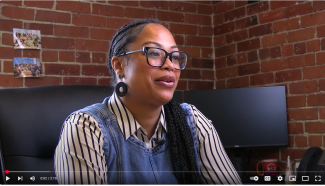A Message from the Director
The Department of Children, Youth & Families (DCYF) is statutorily responsible for protecting the physical and social well-being and development of Rhode Island’s children and families. While this is our statutory responsibility, the care and effort provided by DCYF staff, and our community-based providers goes far beyond what is required. DCYF and its partners strive daily to improve family and child well-being outcomes. Ensuring families thrive and feel supported within their community is a strong value of ours.
Our vision is to move away from being a system that is reactive to allegations of harm and toward a system that seeks to improve family and child well-being by enhancing supports and utilizing alternative response measures as a strategy for preventing child maltreatment. Additionally, timely and equitable access to services is also critical to better supporting vulnerable children and families that are at-risk of engaging in our system. DCYF has worked diligently to create an infrastructure that ensures that families can access the services they need when they need them.
Maintaining child safety, permanency, and family well-being is something that our dedicated staff aspire to achieve on behalf of the children and families we serve. This is accomplished through practicing authentic family engagement. Authentic family engagement means taking a strength-based approach when we meet a new family and partnering with families at a very vulnerable time in their lives to provide access to supportive services. Of utmost importance is utilizing a race equity lens across our family and child well-being and juvenile justice system. DCYF recognizes and is committed to addressing the disproportionality of and disparate outcomes for children based on race and ethnicity.
Effective prevention and early intervention strategies that reduce risk factors and promote protective factors to ensure the well-being of children and families are vital to preventing child maltreatment. Protective factors are conditions in families and communities that, when present, increase the health and well-being of children and families. They are attributes that serve to help parents who might otherwise be at risk of abusing or neglecting their children to find resources, support, or coping strategies that allow them to parent effectively, even under stress.
Finally, the Department strives to build a partnership with parents, youth, foster parents, and all our key stakeholders on developing strategies that meet the needs specific to the communities we serve. We invite all community stakeholders, parents, and youth to engage in the strategic planning process to improve outcomes for our most vulnerable children and families.
Sincerely,
Ashley Deckert, Director
Watch this video featuring Director Deckert sharing an update on our work.
